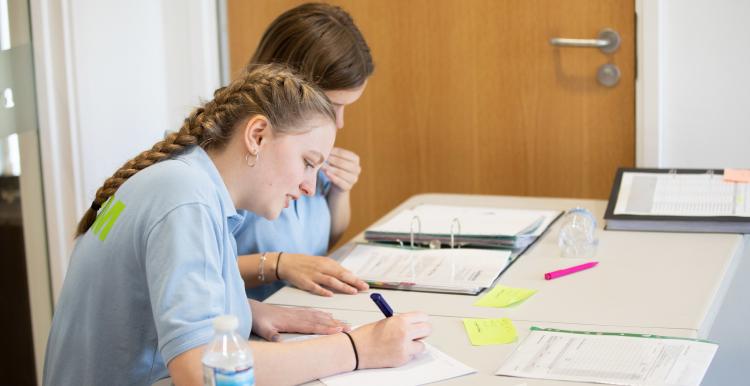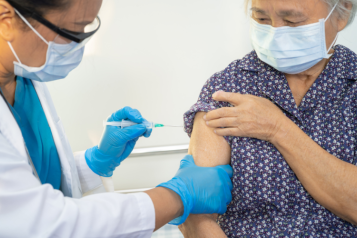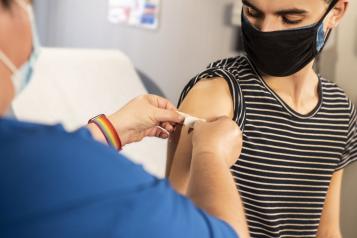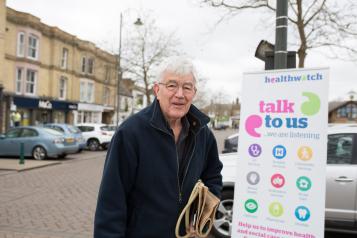Improving public health messaging: what we have learnt from recent engagement work

When the pandemic took hold earlier this year, we began running focus group and interview sessions with local organisations in Westminster and Kensington & Chelsea. We wanted to reach people who are under-represented in conversations about health and social care and ensure their voices are heard during this challenging period. One thing we wanted to know was how well public health messages were being communicated. We wanted to find out what different communities needed in order to be aware of Government and NHS messages.
As part of this work, in July we awarded the French African Welfare Association (FAWA) a grant, through our Small Grants programme, to carry out a series of interviews with local people from French-speaking African communities in west London.
Over the course of our interviews, participants told us of the stigma attached to COVID-19 in their communities. Some interviewees told us that they had experienced stigma themselves after contracting the disease. Others told us that they had experienced familial stigma after a relative died of COVID-19.
“Some interviewees told us that they had experienced stigma themselves after contracting the disease. Others told us that they had experienced familial stigma after a relative died of COVID-19.”
The stigma attached to COVID-19 has important implications for the communication of public health messaging. One interviewee told us that people they knew were reluctant to engage with the Track and Trace system as a result. Another interviewee expressed wariness of the testing system after being in hospital with COVID-19 for three weeks.
It seems that the stigma attached to COVID-19 has caused people to disengage with official COVID-19 related measures and messages. This may present a barrier to the effective distribution of important Government and NHS public health messages within some communities. Local Public Health needs to work with communities to find a way to share national Government guidance and advice with local people.
Through our interviews with FAWA we heard that people shared alternative information privately, often via messaging apps like WhatsApp. This information often directly contradicted official public health messaging from the Government and the NHS.
“A number of interviewees told us that they regularly drink home remedies after being advised that this would protect them against COVID-19 by contacts on WhatsApp.”
Interviewees told us of alternative treatments and measures they took after being advised by friends or relatives. A number of interviewees, for instance, told us that they regularly drink a home remedy after being advised that this would protect them against COVID-19 by contacts on WhatsApp. Current Government and NHS advice is that such home remedies have no impact in preventing us from contracting COVID-19.
"We remain in a period in which the effective communication of public health messages is vitally important."
Our engagement work with FAWA has shown that there are still vital improvements that need to take place to ensure that important Government and NHS public health messages are trusted and available for everyone.
Public health messages need to be adapted and targeted. A blanket, universal approach to public health messaging is inadequate and may not reach some communities. Messages need to be clear and concise, understandable and translated into the many languages spoken by communities across the country. Our engagement work suggests that some communities have a lack of trust in public health messaging. Local Public Health and the Clinical Commissioning Groups must work with local communities and us at Healthwatch Central West London to make sure information and guidance is available for everyone.
We remain in a period in which the effective communication of public health messages is very important. As a local Healthwatch, we will continue to work to raise awareness of these messages, engage with local community groups and people, and feedback what we have learnt from our work to influence health and social care communication and provision across Westminster and Kensington & Chelsea.
We would like to say a massive thank you to FAWA and to everyone who participated in the interviews for sharing their experiences.
Would you like to know more about the current public health advice for Westminster and Kensington & Chelsea?
Get in touch
We want to hear your experiences during this outbreak.
- Send a text or a video to our Whatsapp
- Join the conversation on our NextDoor group
- Be part of our Facebook group
- Send us a picture that reflects how you are coping on our Instagram
- E-mail us
- Call us on 020 8968 7049


